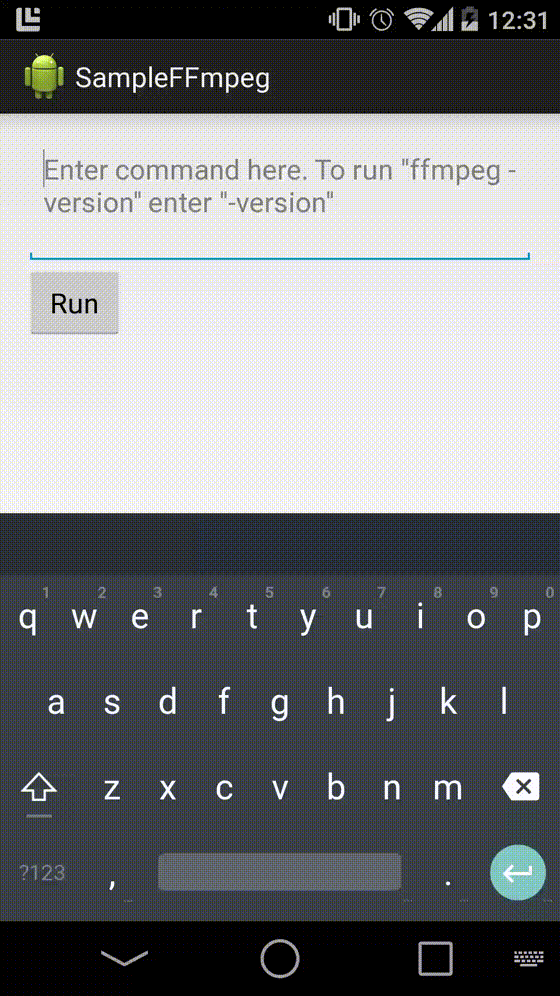 adrielcafe/ffmpeg-android-java
adrielcafe/ffmpeg-android-java
Android java library for FFmpeg binary compiled using https://github.com/writingminds/ffmpeg-android http://writingminds.github.io/ffmpeg-android-java
Download
Step 1. Add the JitPack repository to your build file
Add it in your root settings.gradle at the end of repositories:
dependencyResolutionManagement {
repositoriesMode.set(RepositoriesMode.FAIL_ON_PROJECT_REPOS)
repositories {
mavenCentral()
maven { url 'https://jitpack.io' }
}
}Add it in your settings.gradle.kts at the end of repositories:
dependencyResolutionManagement {
repositoriesMode.set(RepositoriesMode.FAIL_ON_PROJECT_REPOS)
repositories {
mavenCentral()
maven { url = uri("https://jitpack.io") }
}
}Add to pom.xml
<repositories>
<repository>
<id>jitpack.io</id>
<url>https://jitpack.io</url>
</repository>
</repositories>Add it in your build.sbt at the end of resolvers:
resolvers += "jitpack" at "https://jitpack.io"
Add it in your project.clj at the end of repositories:
:repositories [["jitpack" "https://jitpack.io"]]
Step 2. Add the dependency
dependencies {
implementation 'com.github.adrielcafe:ffmpeg-android-java:v0.3.2'
} dependencies {
implementation("com.github.adrielcafe:ffmpeg-android-java:v0.3.2")
} <dependency>
<groupId>com.github.adrielcafe</groupId>
<artifactId>ffmpeg-android-java</artifactId>
<version>v0.3.2</version>
</dependency>
libraryDependencies += "com.github.adrielcafe" % "ffmpeg-android-java" % "v0.3.2"
:dependencies [[com.github.adrielcafe/ffmpeg-android-java "v0.3.2"]]
Readme
FFmpeg-Android-Java 

About
FFmpeg Android java is a java library that simplifies your task of using ffmpeg in Android project which I've compiled using FFmpeg-Android
These are two basic methods of this library:
loadBinary(FFmpegLoadBinaryResponseHandler ffmpegLoadBinaryResponseHandler) throws FFmpegNotSupportedExceptionexecute(String cmd, FFmpegExecuteResponseHandler ffmpegExecuteResponseHandler) throws FFmpegCommandAlreadyRunningException
For examples and usage instructions head over to:
- [writingminds.github.io/ffmpeg-android-java] (http://writingminds.github.io/ffmpeg-android-java/)
Supported Architecture
- armv7
- armv7-neon
- x86
Sample

JavaDoc
License
- Check file LICENSE.GPLv3 and Make sure to follow the licensing terms and conditions of the project and the software used to build the project.
HIRE US
- Get in touch with us - http://www.writingminds.com
